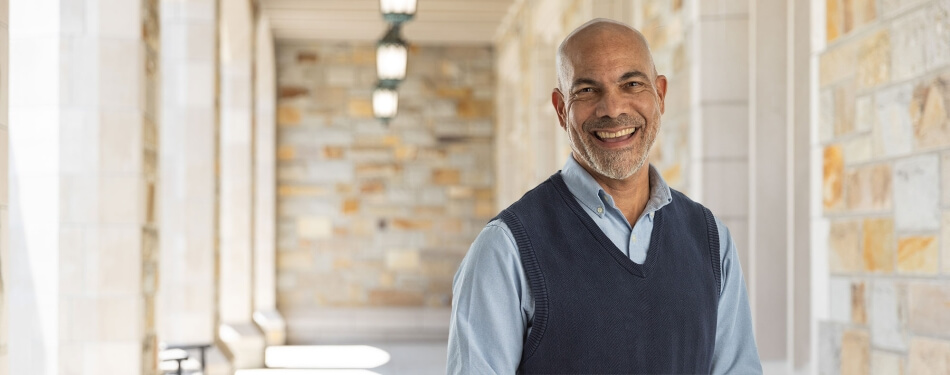Professor Sherman Clark knows the power of arguing well and the risks of arguing poorly.
Clark recently introduced a six-episode video series, Arguably Better, which explores “empathy, efficacy, and ethics in argumentation.” In the series, he discusses how we might argue more persuasively while also being thoughtful about the implications and impact of our arguments.
Clark—the Kirkland & Ellis Professor of Law—recently answered five questions about the series.
1. What prompted you to create Arguably Better?
Persuasion is one of the central themes in my research and teaching. By persuasion, I mean not just argument narrowly, but all forms of coming to terms.
One reason I did this series is that persuasion is central to our profession. We’re constantly trying to come to terms with someone—a jury, a judge, constituents, a person with whom we are negotiating. So persuasion is ubiquitous as a professional capacity. I also think it’s a valuable human individual skill and a valuable civic or public capacity. So as lawyers, in our individual lives and in our public lives as citizens, persuasion is an important skill.
The second reason is that we don’t do it well. We often fail to persuade and come to terms, and that has big costs to our professional work and to our public life. Over the years, I have been reading and studying and thinking about persuasion, and I’m grateful for the opportunity to express some of these themes in this context.
2. How do you describe what the series is about?
It is about why persuasion is so difficult, how we might get better at it, and what sort of ethical considerations ought to attend our getting better at it. If we’re going to get better, we ought to be doing it ethically as well as effectively.
One of the key insights will not strike experienced lawyers as surprising at all. It is simply that we must put ourselves in the shoes of those we try to reach, to see things from their perspective. That’s a starting point for my teaching and my research and for this series, but it turns out to be much harder than it seems.
We all know at some level that we should put ourselves in the shoes of others, but we rarely do. Instead, we seem to be trying to score points or look clever or get likes on social media. In this series, I explore how we might get better at that—how we might put that seemingly straightforward insight to work in actually reaching people.
3. Persuasion can be seen as getting someone to do something that they really don’t want to do. What is the role of ethics in persuasion?
My emphasis is on thriving rather than moral judgment. I want to think about what is good for us as human beings. So when in this series I talk about the ethics of argument, I don’t so much talk about what you should do morally or what kind of arguments are right or wrong. Instead, I talk about what approach to arguing might be good—for both the arguer and the person with whom we are arguing.
“Empathetic engagement” is the term I used for the very familiar idea of putting yourself into the shoes of another. In one episode, I talk about why that’s good for those who do it. The thumbnail version is that seeing the world from the perspective of others helps us see the world better, and seeing the world better helps us navigate it better. The bottom line is, if you’re interested in thriving and figuring out how to live your own life, the capacity for empathetic engagement with other people is a very valuable way to grow and learn.
4. You spend some time in the series discussing what not to do when arguing. What’s an example of a pitfall to avoid?
In episodes four and five, I talk about the fact that if we appeal to something that is not good for the other party, that may be problematic.
The key concern is that we nurture what we appeal to. For example, if I engage with you empathetically and I recognize that you are very fearful, I can appeal to that and nurture that in order to persuade you to vote for me or buy a gun or whatever I’m trying to do. The ethical consideration suggests we should think about what we’re appealing to because we may be nurturing it.
5. The last episode develops the idea of “arguments that heal”—that persuasion can be a true win-win. What is the genesis of that idea?
That’s where I talk about my grandfather and my father and other folks I’ve seen who have the capacity to persuade in ways that nurture good things, the better angels of our nature. Sometimes if we look at a person with the right attitude, we can find things to appeal to that might help us persuade.
It’s my hope that if we get good at persuasion, which is good for us, then maybe we can figure out how to argue in ways that are also good for those we are persuading—and for our whole community.







